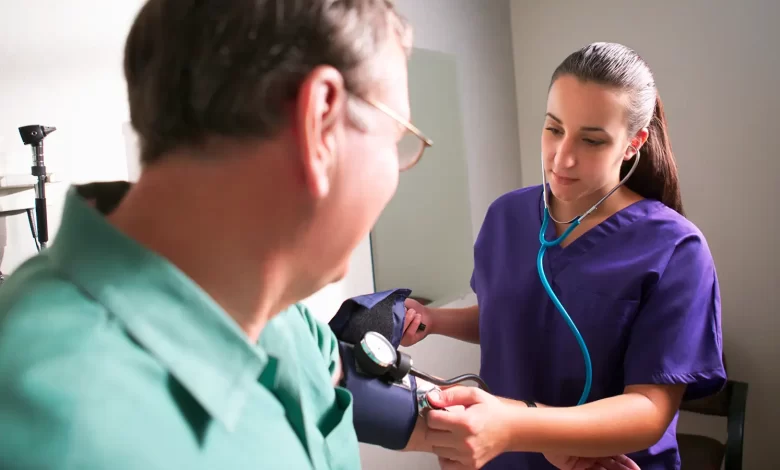Introduction to Hypertension

Blood pressure is the measurement of the force or pressure of blood running against the walls of the blood vessels. When you experience high blood pressure or hypertension, the pressure against the blood vessel walls is continuously very high. High blood pressure is also known as “the silent killer” because an individual will not be aware that anything is wrong with their body, but the damage will be consistently occurring within their body.
Importantly, the blood pressure reading has two different numbers. The top number is known as systolic blood pressure, which is the pressure on the walls of the blood vessel when your heart contracts or beats. The bottom number is called diastolic blood pressure, which is the pressure on the blood vessels between beats during the time the heart is relaxing.
What are the Symptoms of Hypertension?
Some symptoms of high blood pressure include:
- Early morning headaches
- Nosebleeds
- Irregular heart rhythms
- Vision changed
- Buzzing in the ears
- Fatigue
- Nausea
- Vomiting
- Confusion
- Anxiety
- Chest pain
- Muscle tremor
How to Detect Hypertension?
Apart from looking for the above-mentioned symptoms, you can detect hypertension by measuring your blood pressure. Notably, measuring blood pressure is a painless and quick process. Although you can measure your own blood pressure with the help of automated devices, it is important to get the evaluation done by a health professional as it’d be a good way to assess the risks and associated medical conditions.
What are the Risk Factors for Hypertension?
Some modifiable risk factors for hypertension include:
- Unhealthy diet
- Excessive salt consumption
- Low intake of vegetables and fruits
- Physical inactivity
- Consumption of alcohol and tobacco
- Being obese or overweight
- Being older than fifty-five years
- Having a family history of hypertension
- Having co-existing diseases such as kidney disease or diabetes
- Being of the African descent
What are the Complications Caused by Hypertension?
Untreated hypertension can lead to various cardiovascular health problems including.
- Heart attack
- Stroke
- Peripheral vascular disease
- Kidney disease or failure
- Complications during pregnancy
- Vascular dementia
- Eye damage
How to Manage Hypertension?
Importantly, you cannot and should not rely on medications for managing hypertension. You should also take help from some healthy, natural treatments to keep your blood pressure moderate. Some of the such healthy and natural ways for managing hypertension include:
- Checking your blood pressure regularly with the help of a home blood pressure monitor or automated electronic monitors. You can find these monitors easily online or at pharmacies.
- Eating healthy foods that are low in fat and salt.
- Reaching your best body weight and then maintaining it.
- Limiting your alcohol intake.
- Being more physically active.
- Quitting smoking and tobacco products.
- Working on managing stress and anger.
What Medications are Used to Treat Hypertension?
There are various drugs that are used for managing and treating hypertension. Some of these medications are:
- Angiotensin-converting enzyme (ACE) inhibitors
- Angiotensin II receptor blockers (ARBs)
- ACE inhibitors
- Alpha-blockers
- Alpha-2 Receptor Agonists
- Beta-blockers
- Calcium channel blockers
- Central agonists
- Combined alpha and beta-blockers
- Diuretics (water or fluid pills)
- Peripheral adrenergic inhibitors
- Vasodilators